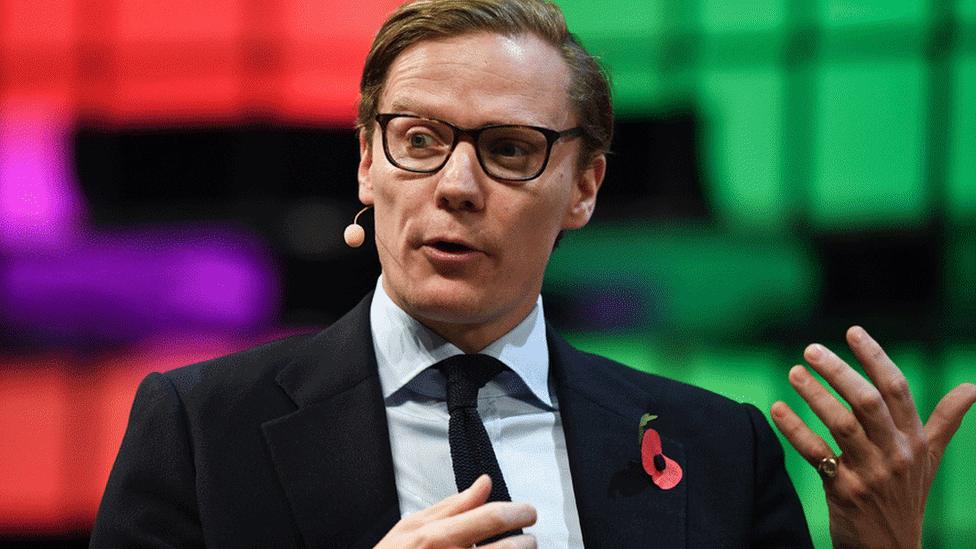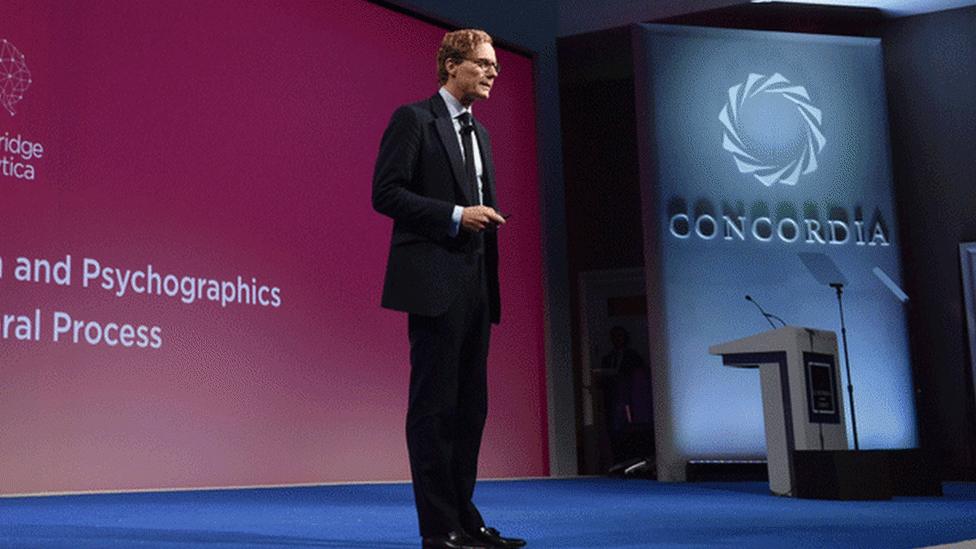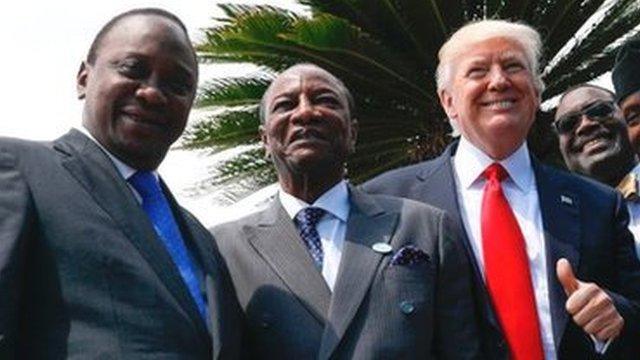MPs grill data boss on election influence
- Published

Alexander Nix answered MPs' questions about election influence
MPs on the Digital, Culture, Media and Sports Committee have grilled the chief executive of Cambridge Analytica over its role in the US election and Brexit.
The controversial firm is credited by some with helping Donald Trump win the presidency.
Its methods of profiling and targeting citizens in political campaigns have come under scrutiny.
Alexander Nix said what the firm was doing was no different from practices in the advertising industry.
Cambridge Analytica claims to have up to five thousand data points on every adult in the US - including what car they own, health concerns, and what media they consume.
It combines this data - purchased from firms that gather such information from digital footprints created by people online - with pyschographics in order to "micro-target" individuals.
Cambridge Analytica gained notoriety for using these methods in Donald Trump's presidential campaign

Mr Nix often speaks at conferences about the power of big data
Some have raised concerns that methods used to market products and brands in the advertising industry have now been transferred to the political arena.
Mr Nix said that the data analytics his firm used in the Trump campaign were also widely used in President Obama's election campaign and that Hillary Clinton also employed "hundreds of data scientists".
"I think people see our work as negative because the client is polarising," he told MPs.
"This is about micro-targeting voters and the techniques have been used in advertising for decades. We have taken their best practices and replicated them for a political party."
"We match data with large quantitative research that asks audiences for their preferences, and collate it to micro-target people"
"There is a misunderstanding of what we do. We use data and technology to engage with voters in a more informed and relevant way. That can only be good for politics and democracy."
He also denied that the firm had undertaken any work on the UK referendum.
In a letter published shortly before the committee meeting, Mr Nix said: "Cambridge Analytica had no involvement in the referendum, was not retained by any campaign, and did not provide any services (paid or unpaid) to any campaign."
MPs spent a large chunk of time questioning this denial.
Ahead of working on Donald Trump's campaign, Cambridge Analytica also worked with Republican candidate Ted Cruz.
One of the MPs asked whether the "psychological profiling" used in the Ted Cruz campaign - giving the example of playing on the fear of women being attacked in their own home in order to support his tough stance on gun ownership - was scaremongering because it used fear as a tool.
"Presenting a fact underpinned by an emotion is not fearmongering," said Mr Nix.
He denied that the firm had a political agenda, saying it avoided political campaigns in the UK and that all political work was undertaken "for main political parties in free and fair democracies".
Mr Nix was grilled by MPs over how the firm created profiles of 240 million Americans, with particular interest in whether the firm used Facebook data.
He denied that the firm used data from the social media giant, but said it did use the platform to conduct surveys.
Exactly how Cambridge Analytica created detailed profiles of nearly 240 million Americans remains something of a mystery, but US professor David Carroll is trying to throw some light on it by reclaiming his personal data from the firm.
He is able to do so because his data was processed in the UK and so is subject to tighter EU data laws.
Privacy experts think that the case could set a precedent in explaining how marketing firms collect and use citizens' data.
- Published3 August 2017
